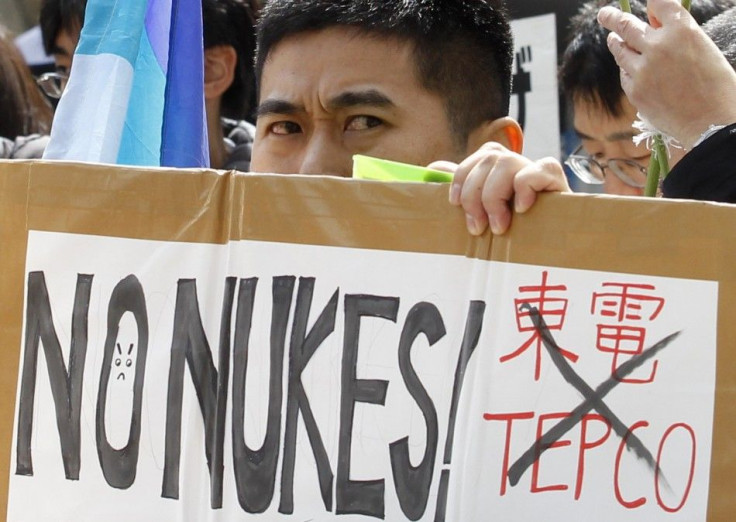Japan Marks First Anniversary Of March 11 Triple Disasters

One year after the Tohoku earthquake, the associated Pacific Ocean tsunami, and the related Fukushima Daiichi nuclear accident, many Japanese spent Sunday at community gatherings, demonstrations, and memorial services in observance of the first anniversary of the triple disasters.
A national minute of silence was observed after 2:46 p.m. local time (05:46 GMT), which was when the magnitude-9.0 quake hit Tohoku last year. Overall, 15,854 people died and another 3,167 went missing because of the triple catastrophes, according to the Japanese National Police Agency.
Flags flew at half staff throughout the country, while some trains stopped running to allow people to observe the minute of silence, according to The Wall Street Journal.
Bells and sirens sounded across the northeastern reaches of the country moments before the minute of silence, the BBC reported.
One memorial ceremony was conducted at Tokyo's National Theatre, the BBC said. It was attended by Japan's Emperor Akihito and Prime Minister Yoshihiko Noda. The 78-year-old emperor had heart surgery three weeks ago.
The emperor devoted most of a seven-minute speech to thanking people for their hard work and sacrifice, the Journal reported: I can never forget there were firefighters and others who lost their lives because they rescued others and ensured safety, even as they knew their own lives were at danger. ... I would like to express my deep gratitude to people who toiled for victims and for disaster-hit areas. To people who have worked to cope with the nuclear accident.
The nuclear accident was also on the minds of demonstrators at a downtown Tokyo park who similarly observed a moment of silence before marching toward the headquarters of the Tokyo Electric Power Co., the operator of the Fukushima Daiichi nuclear power plant, according to The Associated Press.
The Japanese government has contended the crippled nuclear power plant is stable and that radiation has subsided significantly, but the plant's chief acknowledged to journalists visiting the complex recently that it remains in a fragile state, AP noted.
Big challenges still lie ahead at the power plant: They include locating and removing melted nuclear fuel from the inside of the reactors and disposing of spent fuel rods, AP reported. Decommissioning the plant could take as long as 40 years.
Meanwhile, only two of Japan's 54 reactors are currently running, as those shut down for regular inspections undergo special tests to check their ability to weather disasters similar to those that struck a year ago, AP said.
It is important to pray for the victims of the March 11 disaster, Miyako Maekita, the organizer of the anti-nuclear protest in Tokyo, told the Journal. But prayers alone won't change the country.
© Copyright IBTimes 2024. All rights reserved.












